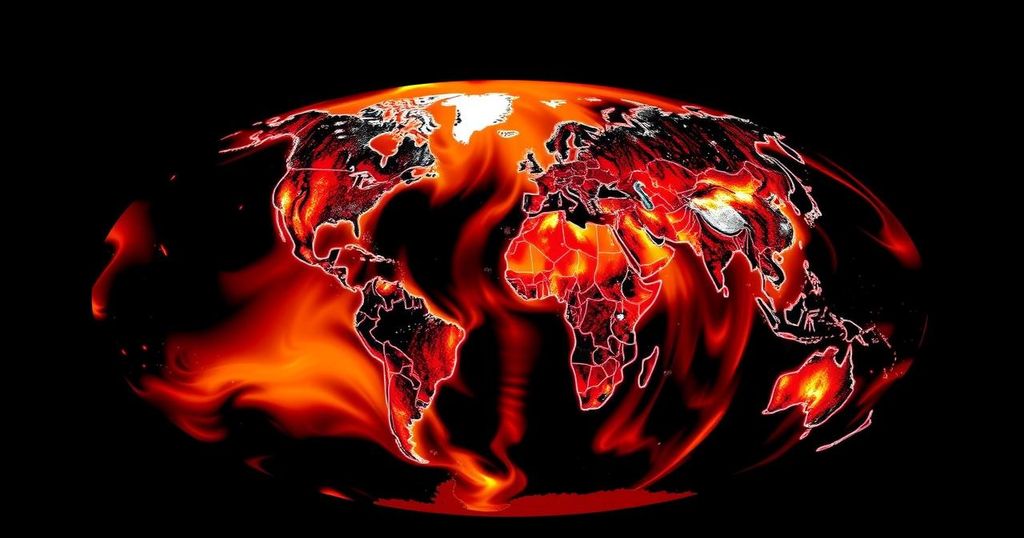A recent UN report predicts a potential average global temperature rise of 3.1°C by 2100 unless nations implement significant greenhouse gas emissions reductions. The report stresses the urgency for countries to enhance their Nationally Determined Contributions, aiming for a 42% reduction by 2030 and a 57% reduction by 2035 to meet the 1.5°C climate target. Failure to take action may lead to catastrophic climate change impacts, disproportionately affecting vulnerable populations.
The recent UN report highlights an alarming forecast for climate change, predicting an average global temperature increase of 3.1°C by the year 2100 unless substantial reductions in greenhouse gas emissions are realized. Initially set by the Paris Agreement in 2015, the ambitious target of limiting global warming to 1.5°C appears increasingly elusive due to insufficient collective action from nations, which have instead focused on military enhancements and fossil fuel extraction. During the COP16 biodiversity conference held in Cali, Colombia, the UN Environment Programme emphasized the urgent need for countries to revise their Nationally Determined Contributions (NDCs) — commitments made by states to mitigate climate change. The report asserts that to avert the 1.5°C benchmark from becoming a lost cause, countries must collectively reduce emissions by 42% by 2030 and 57% by 2035. The UN Secretary-General, António Guterres, expressed grave concern over the current trajectory of emissions, correlating it directly with escalating climate disasters, urging leaders to act decisively. The lack of progress has been palpable, with little advancement made in strengthening global emission targets following previous COP meetings, leading to a persistent emissions gap. Moreover, the report identified feasible technological solutions capable of making significant contributions to emissions reductions, such as increasing the use of renewable energy sources and enhancing energy efficiency. However, to meet any of these goals necessitates unprecedented global collaboration. As the world stands on the threshold of irreversible climate impacts, the upcoming COP29 conference represents a crucial opportunity for nations to forge stronger action plans aligned with the 1.5°C target. Failure to mobilize effectively raises the imminent threat of exacerbated climate disasters, disproportionately affecting the world’s most vulnerable populations.
The report is part of the UN’s ongoing assessment of global response efforts to climate change and aims to evaluate progress in fulfilling commitments under the Paris Agreement. It underscores the wide gap between current national commitments towards emission reductions and the levels necessary to limit global warming effectively, thereby emphasizing the necessity for urgent and cohesive action from all countries. The discourse surrounding NDCs reflects a structured approach to climate governance, where countries must regularly assess and enhance their climate action efforts in response to evolving environmental data and challenges. Such assessments are paramount, especially as we face significant threats from climate change that can lead to catastrophic environmental and humanitarian crises.
In summary, the UN report serves as a clarion call for immediate and unified action against climate change, highlighting the critical need for nations to commit to rigorous emissions reductions if the world is to prevent a catastrophic temperature rise of 3.1°C by 2100. The upcoming COP29 will provide a pivotal platform for governments to recalibrate their climate strategies and genuinely strive towards fulfilling the goals established by the Paris Agreement. As climate-related disasters become increasingly frequent, the global community must recognize the urgency of the situation and mobilize resources and political will to forge a sustainable future.
Original Source: cleantechnica.com






